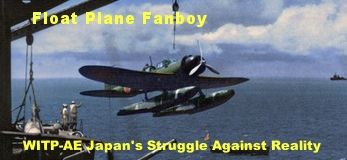ORIGINAL: Zorch
Two forthcoming books - 'Neglected Skies: The Demise of British Naval Power in the Far East, 1922–42 '.
'Neglected Skies uses a reconsideration of the clash between the British Eastern Fleet and the Imperial Japanese Navy’s First Air Fleet in the Indian Ocean in April 1942 to draw a larger conclusion about declining British military power in the era. In this book, Angus Britts explores the end of British naval supremacy from an operational perspective. By primarily analyzing the evolution of British naval aviation during the interwar period, as well as the challenges that the peacetime Royal Navy was forced to confront, a picture emerges of a battle fleet that entered the war in September 1939 unready for combat.
By examining the development of Japan’s first-strike carrier battle group, the Kido Butai, Britts charts both the rise of Japan as a wartime power as well as the demise of the Royal Navy. Japan, by concentrating their six largest aircraft-carriers into a single strike force with state-of-the-art aircraft, had taken a quantum leap forward in warfighting at sea. Simultaneously, British forces found themselves outmatched in this Eastern theatre and Britts makes the case, by looking at a set of key battles, that this is where the global supremacy of Britain’s naval power ended.'
warspite1
This might be an interesting book. I wonder what ‘set of key battles’ the author is going to look at? But I am not confident that this is going to be looked at in the right way (I hope I'm wrong).
'Eastern Theatre …that is where the Global Supremacy of Britain’s naval power ended'
Well no, not really. Britain’s naval supremacy ended with Washington (and was going to end even without the WNT). The UK stole a march on everyone with the Industrial revolution. As such she was able to punch above her weight for so long. But by the start of the 20th Century that was long since a thing of the past, and everyone was catching up – or had gone past the UK. Countries were right-sizing. That the UK should maintain naval supremacy forever was not even remotely possible.
By primarily analyzing the evolution of British naval aviation during the interwar period,
If the evolution of naval aviation is the primary analysis then it’s not clear what this book would add over and above the likes of Friedman’s
Fighters over the Fleet and
British Carrier Aviation or Hobbs’
British Aircraft Carriers.
as well as the challenges that the peacetime Royal Navy was forced to confront, a picture emerges of a battle fleet that entered the war in September 1939 unready for combat.
He says battlefleet, but as we know from what happened, we are essentially talking about air power here. Well the Japanese didn’t go to war for more than 2 years after 1939 and I think it’s interesting to look at the World’s navies at that time i.e. not compare the RN 1939 to the IJN 1941. It’s then important to look at things on a level playing field. Doing things that way doesn't alter the outcome - but at least tells the whole story.
Of course it’s true that the RN had been hampered by the Government decision to allow the RAF to control naval aviation. That decision had only recently been reversed when war broke out. The Fleet Air Arm was small in size and with outdated bi-plane aircraft. But what aircraft did the Japanese have aboard their aircraft carriers in 1939? Indeed how many carriers did they have in 1939 (Hiryu had only just been completed when war broke out)? The blurb for the book mentioned the Japanese put their six carriers together (the British were performing multi-carrier exercises long before the Japanese), but the British development in that two year period was somewhat hampered by having three fleet carriers lost and two new armoured carriers put out of action.
The Japanese navy meanwhile were free to develop some excellent naval aircraft over the coming years – while the British were fighting for survival and much effort and resource that would have gone to the FAA was necessarily diverted to the Battle of Britain and elsewhere.
There is also the point that the British and Japanese navies had different needs.
One other point of course. Naval supremacy isn’t just about shiny battleships and sexy aircraft carriers. For an island nation, protection of sea lanes is pretty much top priority. The Japanese maybe should have spent a little bit more time, effort and resource on anti-submarine warfare…..
So yes, the Royal Navy had lost naval supremacy – as a function of the size and economic strength of the UK. But I hope this book attempts to properly explain that there is a whole lot more to the story than that. There was also something of a perfect storm that brewed up. By 1939 the British had at last got around to bringing the RN aircraft carrier fleet up to date with six armoured carriers on order and the RN had taken control of its own aircraft (although the aircraft would take time to develop - and planned stop gap purchases from the US did not come through on time). But the war - a war that was to show the critical importance of dominance of the skies - came about before the inter-war problems could be rectified. While the Japanese had time to develop her carrier fleet, the British were having to crisis manage everything in a bid to stay alive.

















